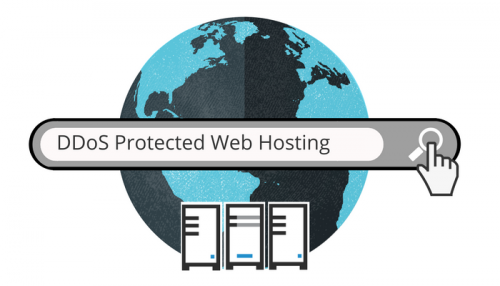
DDoS attacks can be frustrating for many website owners as hackers may aim to overwhelm a website and its server resources until it goes offline. For larger organizations, a successful DDoS attack can mean loss of hundreds or even tens of thousands of dollars for every hour the site is down. And although less quantifiable, the loss of customer loyalty resulting from a DDoS attack can be harder to recover from.
Because DDoS attacks are one of the worst cyberattacks that a website owner may have to worry about, an important question we should be asking ourselves is whether or not hosting providers are responsible for your website’s security. In this blog, we will determine who exactly is responsible for security on your website and how you should protect your website.
Is My Hosting Provider Responsible for Web Security?
Hosting providers are primarily concerned with delivering cheap, reliable, and smooth hosting services for their end users. Most hosting providers will say that security is the individual’s responsibility as there are limited web hosting providers partnering with security vendors. Hosting companies also exempt themselves from liability if your website is hacked or brought down by a DDoS attack.
A web hosting provider’s security interests usually begin and end with the infrastructure that they provide and the collective security of their users but not so much the individual security of each website. All the data that is stored within the customers’ websites is ultimately viewed as the property of the website owner. This is why it is critical for website owners to learn the importance of web security and stop relying on a hosting provider that has no security add-ons to boast.
Are There Protected Web Hosting Plans?
The short answer is yes. Although web hosting providers are aware of the rising importance of web security, not all can meet the security demands of the customers, especially if they depend on maintaining low monthly prices for their customers. One piece of advice you might often hear is to make sure your web hosting provider is protecting their servers so that they may subsequently provide a secure environment for their customers. Realistically speaking, this is difficult to gauge. It also might be the case that the web host is utilizing outdated servers or has poor maintenance or none at all.
This is something that the web hosting provider will likely not disclose with their customers. However, there is one route you can go down: selecting hosting providers that provide high-quality security (i.e DDoS protection, WAF, SSL). Recognizing that security is essential to website building while striving for a smooth user experience without service interruption (arising from cyberattacks and otherwise), more hosting providers have started to started partner with web security vendors.
An Affordable Approach to Website Security
Because a large majority of web attacks including DDoS attacks occur at the application layer, having a Web Application Firewall (WAF) is a vital service. Cloudbric, for example, provides comprehensive web security features in one convenient package known as Cloudbric WAF+. And by partnering with web hosting providers, Cloudbric supports the provision of high quality and affordable web hosting solutions. Its service prevents hackers, crawlers and bots, spammers and DDoS attacks on your website and only allows legitimate visitors to access your site.Although web hosting providers can give you all the tools to create your business website, they are not the main responsible party when it comes to web security for your website. Guaranteeing the safety of a website ultimately depends on you, the website owner. We highly recommend choosing a hosting plan that offers a comprehensive package of security features that charges not by feature but per bandwidth, thus allowing websites, small or big, to get more bang for your buck.





